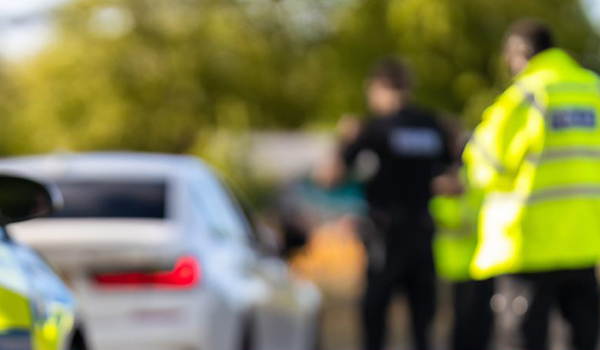Streamlining digital evidence
Leicestershire Police is rolling out new software to improve collaboration on joint investigations with neighbouring forces through the automated collection and electronic sharing of digital evidence.
It is deploying the NICE Investigate digital investigation and digital evidence management solution across its force of 1,800 officers following a successful pilot that “exceeded expectations”.
Leicestershire Police says NICE Investigate will digitally transform processes around collecting, analysing and sharing evidence, to drive “improved efficiency, time savings, cross-agency collaboration and better justice outcomes”.
The pilot involved 200 officers from the force’s complex investigation, serious sexual offences investigation team, domestic abuse and neighbourhood teams – and focused mainly on shoplifting and public order offences. Twenty investigation support staff from Leicestershire Police’s criminal justice team were then responsible for sharing evidence with the Crown Prosecution Service (CPS), once officers had completed their investigations.
“The teams were carefully chosen to ensure we tested the full range of functionality and capabilities of NICE Investigate,” said force project manager Allan Graham. “In addition to supporting our investigations, NICE Investigate needed to be able to support high volumes of activity and, more crucially, make it easy to share information with the CPS for pre-charging decisions.”
The pilot team realised improvements in both process efficiency and time savings, relating to a range of different investigation and offence types. What became instantly clear, however, was NICE Investigate’s ability to share evidence quickly for pre-charging decisions – a huge benefit, said Mr Graham.
He added: “In addition to sharing evidence quickly to the CPS for pre-charging decisions, our officers were also quick to recognise the ability to speed up remand decisions.
“Getting body-worn video (BWV) and CCTV footage to the CPS fast enough to obtain a remand decision was simply not possible. We had to copy evidence onto CDs, DVDs and USB drives and then hand deliver those materials. Increased wait times meant suspects were often bailed or released under investigation before they could be charged. With new national requirements now mandating that all digital evidence be shared electronically, NICE Investigate has helped us forge a better way forward.”
Another benefit is the ability to automatically correlate and pull relevant evidence into digital case files. Investigators work in one system rather than silos. So instead of wasting time searching in different systems for evidence, and phoning, emailing and filling out forms, officers simply log onto NICE Investigate where their evidence is waiting.
For example, as soon as a case is opened (and an electronic case folder is created), any relevant records from the force’s NicheRMS Police Records Management System, STORM Command and Control system and BWV system are automatically ingested. In the next phase, the force plans to add further integrations to its interview room and 999 recording systems.
Officers involved in the pilot reported significant efficiency gains and time savings.
Collaboration with neighbouring forces also improved, with Leicestershire Police using NICE Investigate to share evidence during joint investigations.
As an example, Mr Graham highlighted a case involving CCTV video. Instead of driving to the crime location, securing the video, making a copy of it and then physically transporting it to the other force, investigators were able to complete the entire end-to-end process of securing and sharing the video from their desks within half an hour.
“Our officers see this as a real game-changer,” he added. “NICE Investigate has exceeded our expectations.”
Chris Wooten, executive vice-president, NICE, said: “Police forces around the world are turning to digital transformation solutions like NICE Investigate, not just to save money and time, but also to improve justice outcomes and ensure safer communities.
“We applaud Leicestershire Police for taking this big step forward and setting an example for other forces to follow within their own practices.”






